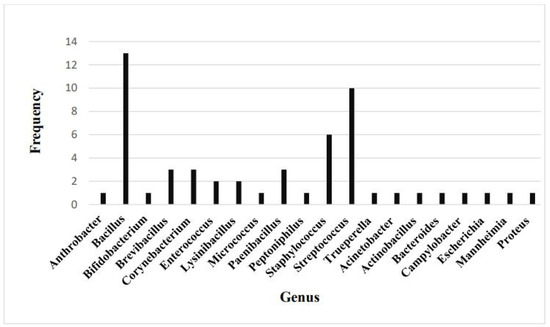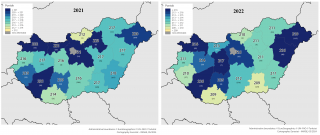Latest scientific results from our students
| Doctoral students Zsóka Várhidi and Marietta Máté, along with their co-authors, conducted a study on the current management characteristics and future plans of equine veterinary practices in Hungary. The findings reveal that these practices are typically run by a single veterinarian who provides services at the horse’s location and works almost exclusively with horses. Most practice leaders have completed at least one specialized postgraduate course, and many are currently pursuing further education, indicating a strong commitment to continuous professional development. Equine veterinary medicine is a field that requires significant investment, involves irregular working hours, long travel distances, and is both physically and mentally demanding. Therefore, effective practice management, achieving work-life balance, and developing long-term business goals are essential for sustainability. The study shows that Hungarian equine veterinarians are open to development, but there is considerable room for improvement in entrepreneurial knowledge and management strategies. M. Varga, M. Máté, K. Bárdos, Zs. Várhidi (2025). A magyarországi lovas állatorvosi praxisok aktuális menedzsmentjellemzői. Magyar Állatorvosok Lapja (147) 295-308 https://huveta.hu/handle/10832/4376 |
 | To ensure reproductive health and disease prevention in dairy cows, understanding the normal bacterial flora of the vaginal tract is essential. In their study, Zsóka Várhidi and colleagues identified bacterial species naturally present in the vaginas of healthy dairy cows and assessed their sensitivity to commonly used antibiotics. A total of 54 bacterial species were identified. While some species carried resistance genes, most remained sensitive to a wide range of antibiotics. These findings support the development of protocols aimed at maintaining a balanced vaginal microbiota and promoting responsible antibiotic use in dairy cattle farming. Zs. Várhidi , V. Jurkovich, P. Sátorhelyi, B.Erdélyi, O. Palócz, Gy. Csikó, Identification of Naturally Occurring Inhabitants of Vaginal Microbiota in Cows and Determination of Their Antibiotic Sensitivity Veterinary Sciences, 2025, 12, 423 |
 | The study by Rege Anna Márton investigated the effects of the antimicrobial peptide (AMP) Pap12-6 on immune response and epithelial integrity in chicken-derived ileal explant cultures. AMPs are promising alternatives in the fight against antimicrobial resistance, as they not only exhibit direct antimicrobial activity but also modulate host immune responses. Pap12-6 was applied at 25 and 50 µg/ml concentrations, both alone and in an inflammatory environment induced by Poly I:C. The peptide did not reduce cell viability, indicating its safe application. Immunologically, Pap12-6 increased IL-2 and IL-8 levels and reduced IFN-γ production under inflammatory conditions. Regarding epithelial integrity, expression of tight junction proteins occludin and claudin-3 was enhanced. Overall, Pap12-6 had a positive influence on intestinal immune status and epithelial structure, making it a promising candidate for future poultry health applications. Poultry Science Volume 104, Issue 8, August 2025, 105376 |
 Dr. Máté Farkas, PhD student at the Institute of Food Chain Science, conducted an epidemiological assessment of large-scale poultry farms in Hungary, focusing on the relationship between avian influenza outbreaks with zoonotic potential and disease control measures. The research revealed that the biosecurity level directly impacts the frequency of avian influenza outbreaks. Farms with better disease control practices are less likely to be affected by outbreaks. Regular auditing not only helps to improve the current disease control situation but also shapes farmers’ attitudes toward disease control. M. Farkas, L. Könyves, Sz. Csorba, Zs. Farkas, Á. Józwiák, M. Süth, L. Kovács, Magyar Állatorvosok Lapja 2024 (12) 723-742
Dr. Máté Farkas, PhD student at the Institute of Food Chain Science, conducted an epidemiological assessment of large-scale poultry farms in Hungary, focusing on the relationship between avian influenza outbreaks with zoonotic potential and disease control measures. The research revealed that the biosecurity level directly impacts the frequency of avian influenza outbreaks. Farms with better disease control practices are less likely to be affected by outbreaks. Regular auditing not only helps to improve the current disease control situation but also shapes farmers’ attitudes toward disease control. M. Farkas, L. Könyves, Sz. Csorba, Zs. Farkas, Á. Józwiák, M. Süth, L. Kovács, Magyar Állatorvosok Lapja 2024 (12) 723-742
